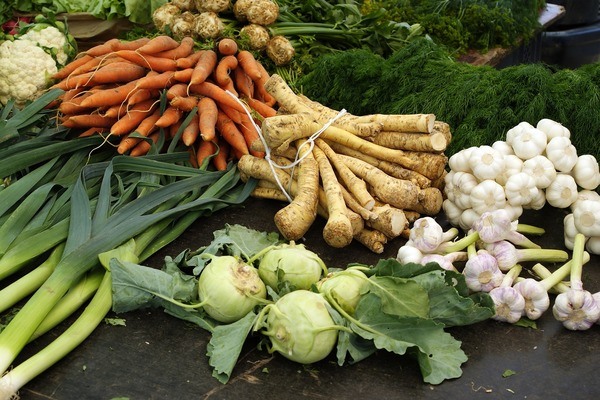
Sponsored Links
Your kidneys do a lot of important jobs, and if you don’t keep them healthy, it puts you at risk of dangerous conditions like renal failure or kidney cancer. The primary and best-known function of kidneys is to filter blood and excrete liquid waste. But they do a lot more than that.
Kidneys help control your blood pressure because they require an optimal pressure level to do their work. That means that kidneys are able to either raise or lower blood pressure as needed via a hormone called renin that constricts blood vessels.
Kidneys have cleansing as their prime directive, and don’t therefore need an external detox aid. That said, there are some ways to relieve strain on your kidneys so they can do their best work.
Eating lots of healthy food and staying well hydrated is most important. After that, there are certain herbs that kidneys love. Wait until you see #5 – it’s shockingly easy to get but you probably never thought of eating it before!
1. Garlic
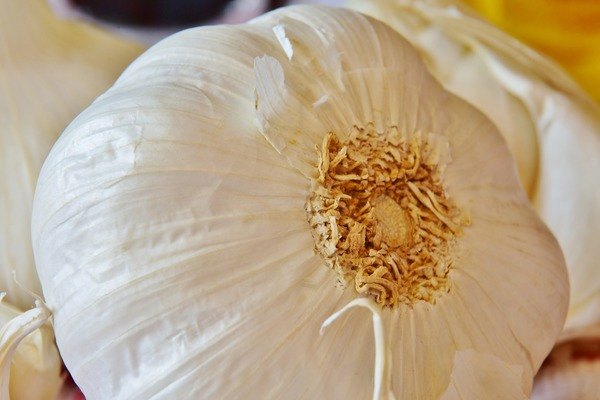
Garlic has a protective effect on your kidneys and other organs. Regular consumption has been found to lower the concentration of lead and cadmium in kidneys, heart, liver, spleen, and blood stream. Garlic also has diuretic properties that help you eliminate excess sodium from your body.
And not only that, but allicin, the active ingredient in garlic, has anti-inflammatory, antibacterial, and anti-fungal properties. That means it can greatly assist your kidneys in cleansing and filtering blood of harmful invaders.
2. Turmeric
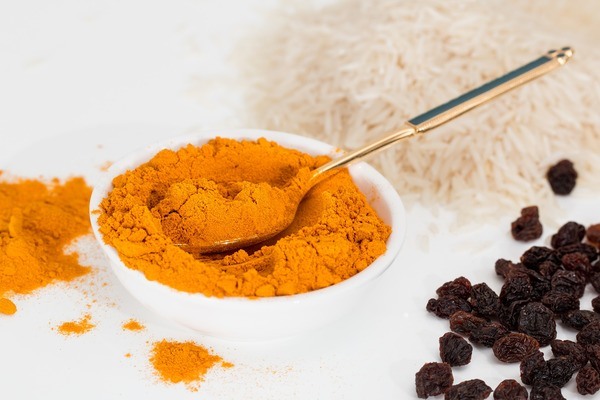
Fans of Asian cuisine are quite familiar with turmeric, which is the herb that gives curry its distinctive flavor and color. The active ingredient in turmeric is curcumin, which is known to reduce the effect of inflammatory molecules and enzymes that trigger chronic kidney disease. Curcumin actually holds back the growth and spread of all kinds of microbes, easing the strain on your kidneys.
One of word of caution applies to people who already have kidney disease. Turmeric contains a fair amount of potassium, which normally works in partnership with sodium to regulate the body’s fluid levels. Kidney disease makes it difficult for kidneys to keep potassium in balance, so sufferers are often asked to limit their intake of it.
3. Ginger
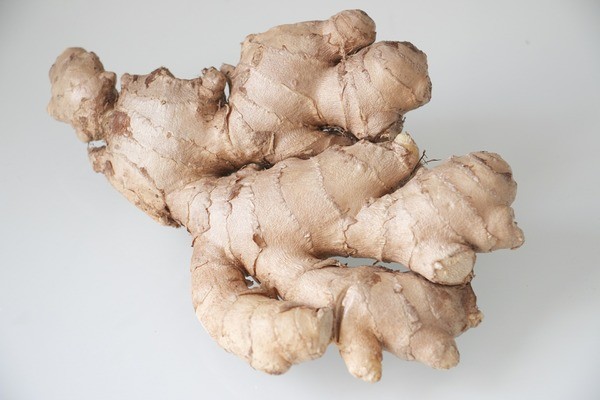
Long used in holistic medicine, ginger contains a compound called gingerol that is known to inhibit the spread of bacteria. This can be helpful to overworked kidneys and liver. Gingerol is also an effective means of support for healthy digestion and it reduces inflammation and pain all over the body.
Chronic high blood sugar has a damaging effect on the kidneys, and some studies suggest that powdered ginger can help control it. For this reason, regular ginger consumption is thought to reduce the incidence of kidney complication in people with diabetes. In healthy people, ginger may prevent the development of diabetes at all.
4. Cranberry
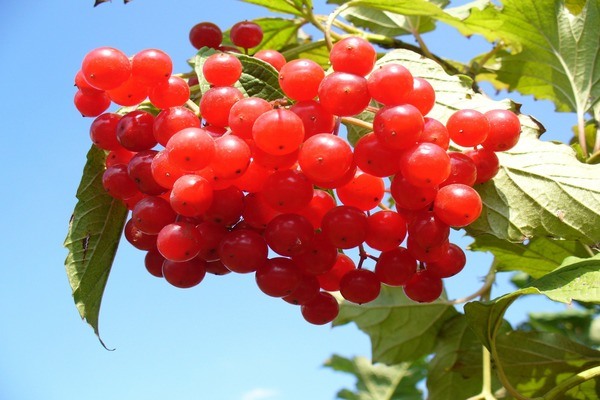
Sponsored Links
Cranberries are an awesome fruit to add to most any diet, even a low-potassium kidney diet. They are recommended for people with bladder infections because cranberries contain a type of phytonutrient called A-type proanthocyanidin, which stops bacteria from sticking to the lining of your urinary tract and kidneys.
People with kidney disease have a higher incidence of urinary tract infections, and cranberries are a useful addition to their daily diet because they are also low in sodium, phosphorus, and of course, potassium.
Eating cranberries regularly, whether or not you have kidney disease, can prevent urinary and bladder infections all together. Enjoy them whole, dried, or juiced.
5. Dandelion Root
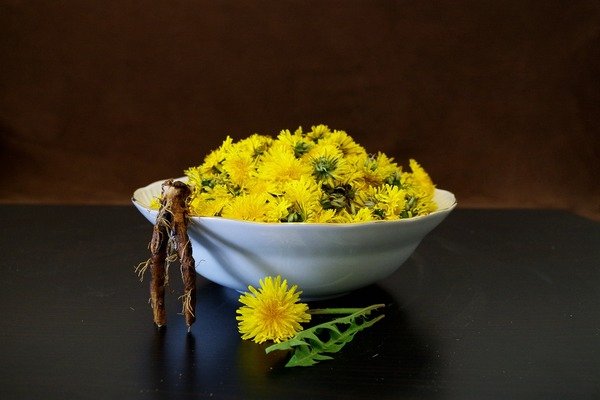
Dandelions might drive you crazy when they take over your lawn, but these “weeds” actually have a lot of benefits. Dandelion root is a diuretic that can help cleanse both your kidneys and your liver. It has been used to treat jaundice, acne, and anemia as well as kidney and liver disorders. Dandelion root is also great for preventing irritation in the urinary tract.
To consume dandelion root, most people make a tea with the crushed roots. Simmer them gently in water for 15 minutes or so, then strain and drink. You can also eat dandelion leaves raw or cooked. Since dandelions grow virtually everywhere at a very fast rate, during the summer months you can get them completely free, right in your own backyard.
6. Parsley
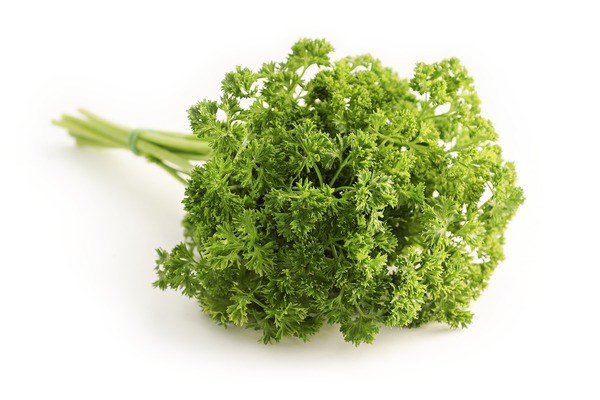
Don’t forget the garnish! It may seem pointless to finish a meal with a sprinkling of parsley, but that little bit of this herb actually helps to reduce the build-up of toxins in your kidneys. Parsley contains compounds called apiol and myristicin, which are natural diuretics. You can also take parsley to help with urinary tract infections and kidney stones.
However, parsley is not recommended for people with diabetes because it may lower blood sugar. In conjunction with doctor-prescribed medication, parsley could lower it too much. Parsley may also make existing kidney disease worse. It’s best to talk to your doctor if you are considering starting a regular parsley regimen.
7. Celery Root
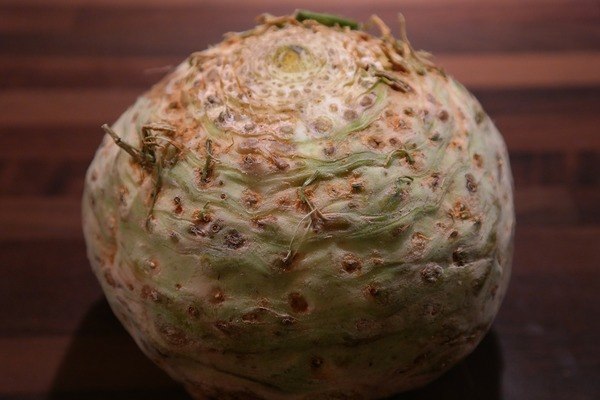
Celery root has both potassium and sodium, so it gives kidneys what they need to do their work. It also contains a lot of water and increases urine output, allowing your body to flush out residual toxins. Eating celery root is thought to prevent bacterial infections of both kidneys and urinary tract. Some studies indicate that celery can shrink cysts on reproductive organs, too.
Celery has a relatively low level of potassium with even a large stalk containing only 4% of basic RDI. However, speak to your doctor about adding celery to your daily diet if you have existing kidney disease.
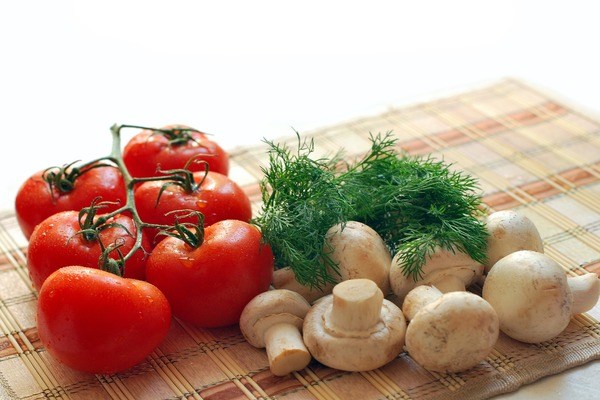
Sponsored Links
These 7 herbs can do great things for your kidneys if you incorporate them into your daily diet before you develop kidney disease or diabetes. This is one of the easiest and the best preventative measures to maintain the health of these vital organs.
These herbs work so well that once a person does develop kidney disease, they’ll need to avoid them because they boost the performance of medications in a significant and often unpredictable way. (How much you eat and varying levels of certain minerals in the plants makes the use of herbs less measurable than precise medication dosing.)
From spicy garlic and turmeric to bitter dandelion, tart cranberries, and bland celery, there is an herbal solution suited to the tastes of anyone looking to maintain their kidney health.
